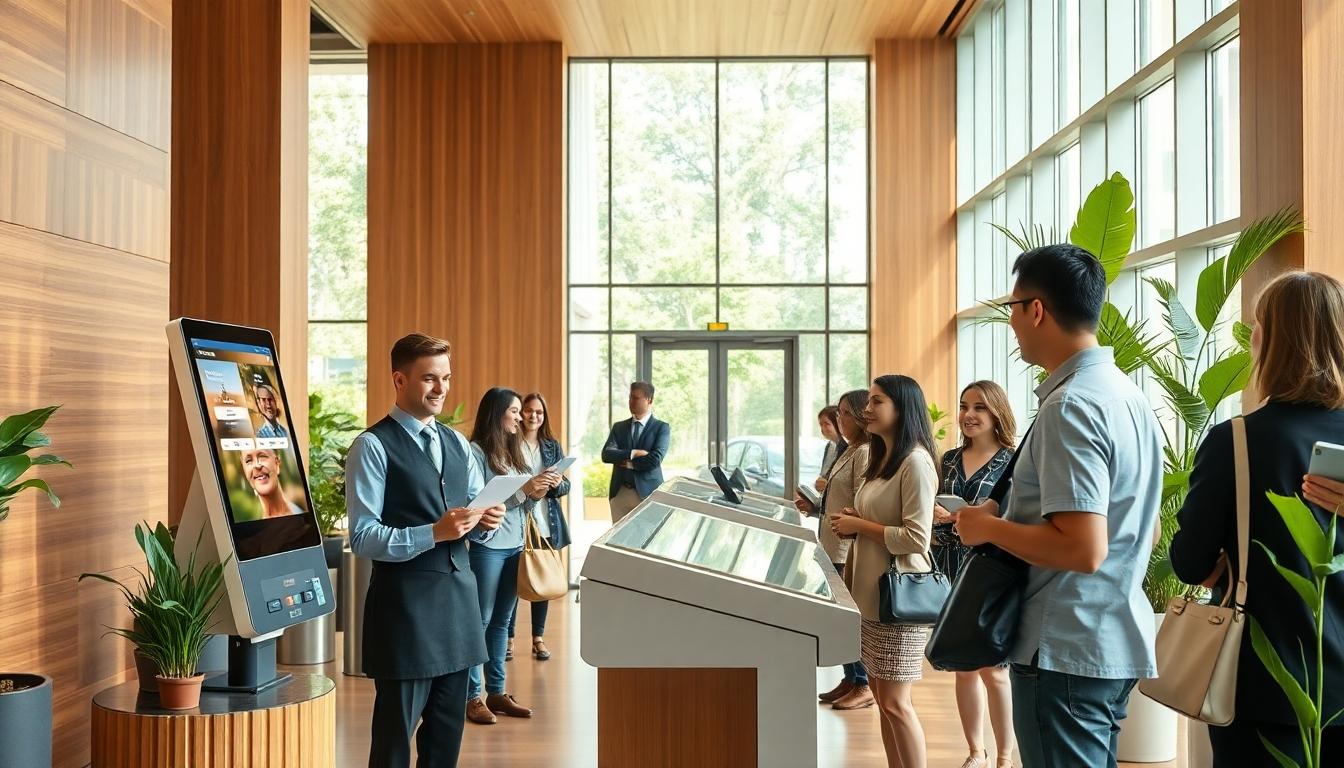The hotels, restaurants, and leisure industry is buzzing with excitement, and it’s not just the sound of clinking glasses and sizzling pans. As travel resumes and diners flock back to their favorite spots, this sector is evolving faster than a chef can whip up a soufflé. From innovative dining experiences to tech-savvy hotel stays, the trends shaping this industry are as dynamic as a well-mixed cocktail.
In a world where customers crave unique experiences, businesses are stepping up their game. They’re blending comfort with creativity, ensuring that every stay and meal leaves a lasting impression. Whether it’s a quirky themed hotel or a restaurant serving up Instagram-worthy dishes, the focus is on making each moment memorable. Buckle up as we dive into the latest trends that are not just reshaping the industry but also redefining what it means to indulge in leisure.
Table of Contents
ToggleOverview of Hotels, Restaurants & Leisure Industry Development Trends
Transformation in the hotels, restaurants, and leisure industry centers on customer experience. Unique concepts attract guests, creating demand for themed accommodations and immersive dining experiences. Emphasis on sustainability shapes decisions in all areas of the industry, prompting businesses to adopt eco-friendly practices.
Technological advancements drive innovation. Digital check-ins streamline hotel arrivals, while mobile apps enhance dining experiences. Artificial intelligence delivers personalized recommendations, improving engagement. Additionally, the use of data analytics shapes operations, allowing businesses to predict trends.
Health and wellness trends influence the sector significantly. Hotels incorporate wellness offerings like yoga sessions and spa treatments, while restaurants introduce nutritious menu items. Locally sourced, organic ingredients gain popularity, aligning with consumer preferences for healthier options.
Flexibility becomes essential in operations. Adaptability to changing traveler needs ensures success. Remote work trends lead to the rise of “workation” packages, blending leisure with productivity. Moreover, outdoor dining solutions, such as patios and rooftop spaces, allow restaurants to accommodate guests while promoting safety.
Lastly, collaboration stands as a key trend. Partnerships between hotels and local attractions offer guests curated experiences. Restaurants collaborate with local farmers to source seasonal ingredients, creating a sense of community. By embracing these trends, the industry evolves, responding effectively to shifting consumer expectations.
Key Trends Shaping the Industry

The hotels, restaurants, and leisure industry is evolving quickly. Key trends are significantly influencing this transformation.
Technological Innovations
Businesses adopt technology to streamline operations. Digital check-ins reduce wait times and improve guest satisfaction. Mobile apps provide access to room service and local attractions. Artificial intelligence personalizes recommendations for dining and activities, enhancing overall experiences. Data analytics helps organizations understand customer preferences better, leading to tailored offerings. With these advancements, the industry becomes more efficient while catering to tech-savvy travelers.
Sustainability Practices
Sustainability influences consumer decisions increasingly. Eco-friendly practices become essential for hotels and restaurants. Using locally sourced ingredients reduces environmental impact and supports nearby farmers. Many establishments implement waste reduction strategies, such as composting and recycling. Energy-efficient systems contribute to lower operational costs while minimizing their carbon footprint. By prioritizing sustainability, businesses enhance their reputation and appeal to environmentally conscious guests.
Challenges Facing the Industry
The hotels, restaurants, and leisure industry faces numerous challenges affecting growth and stability. Economic fluctuations, evolving consumer preferences, and sustainability concerns create hurdles that businesses must navigate.
Economic Factors
Economic factors significantly impact profitability in the hotel, restaurant, and leisure sectors. Inflation affects operational costs, resulting in higher prices for goods and services. In 2022, the U.S. experienced a 7.7% increase in consumer prices, influencing spending patterns. Strain on disposable income leads consumers to prioritize essential expenditures over luxury experiences. Additionally, fluctuations in employment rates affect travel demand and dining frequency, requiring businesses to adapt operational strategies accordingly. Analyzing local economic conditions helps businesses understand community needs and adjust offerings accordingly.
Changing Consumer Preferences
Changing consumer preferences present opportunities and challenges within the industry. Guests increasingly seek unique experiences over traditional services, driving demand for themed hotels and experiential dining. Health consciousness influences menu selections, with many opting for nutritious, locally sourced ingredients. Research indicates that 56% of diners prefer restaurants that practice sustainability. Furthermore, personalization is essential; guests expect tailored experiences, from room amenities to dining options. Adapting to these preferences demands creativity and flexibility, pushing businesses to innovate continually and redefine their service models.
Future Outlook for Hotels, Restaurants & Leisure
Emerging trends reshape the hotels, restaurants, and leisure sectors, emphasizing unique experiences that attract diverse clientele. Unique accommodations, like themed hotels, capture guest interest while offering memorable stays. Immersive dining experiences engage patrons, integrating creativity into culinary offerings and enhancing overall satisfaction.
Sustainability remains a priority, urging businesses to adopt eco-friendly practices. Eco-conscious travelers prefer establishments that reflect their values, which drives hotels and restaurants to implement green initiatives. Health and wellness trends also transform menus, with a focus on nutritious, locally sourced ingredients appealing to health-conscious diners.
Technology integration deepens guest engagement. Personalized recommendations facilitated by artificial intelligence enhance customer experience, while digital check-ins streamline operations. Flexibility accommodates evolving traveler needs, exemplified by the rise of workation packages, which blend business and leisure seamlessly.
Collaboration fosters community relationships, as hotels partner with local attractions. Restaurants increasingly source seasonal ingredients from nearby farms, supporting local economies. This approach not only enhances menu quality but also strengthens consumer trust and loyalty.
Increasing challenges include economic fluctuations and changing consumer preferences, which require consistent innovation. Rising inflation affects disposable income, compelling businesses to revise pricing strategies without compromising quality. Guests expect personalized services that reflect their individual preferences, adding complexity to hospitality management.
Attention to these trends and challenges allows the industry to adapt effectively to shifting consumer expectations. Balancing sustainability with profitability and personalization paves the way for future growth in hotels, restaurants, and leisure markets.
The hotels, restaurants, and leisure industry is on the brink of a remarkable evolution. Embracing trends like sustainability and personalization is crucial for businesses aiming to thrive in this dynamic landscape. As they adapt to consumer demands for unique experiences and health-conscious options, the focus on innovation will drive the sector forward.
Collaboration with local communities and the integration of technology will enhance guest engagement and operational efficiency. By navigating challenges and prioritizing these emerging trends, the industry can not only meet but exceed the expectations of today’s travelers. The future looks promising for those ready to embrace change and foster memorable experiences.





